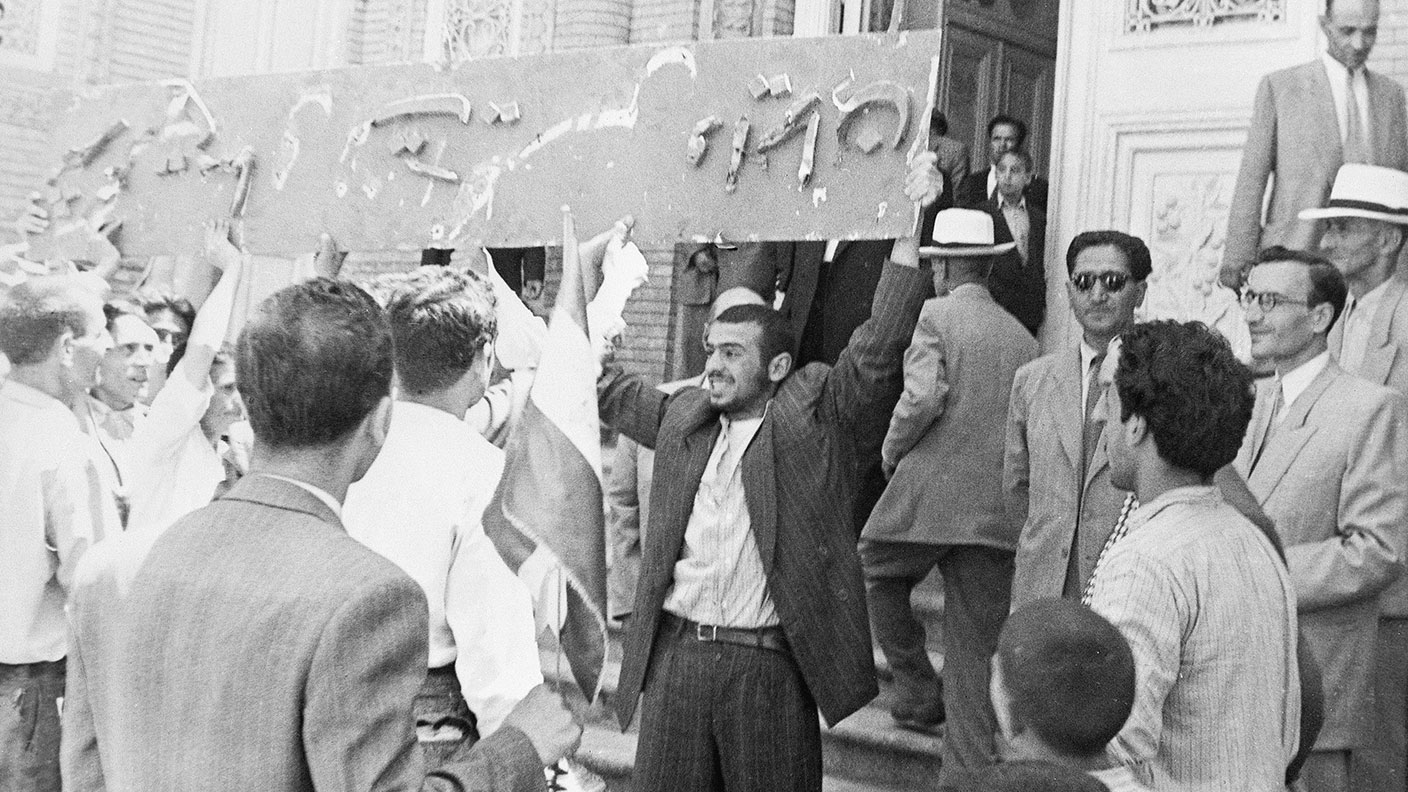10 September 1951: Britain boycotts Iran over the Anglo-Iranian Oil Company
On this day in 1951, Britain boycotted and blockaded Iran after the latter nationalised the Anglo-Iranian Oil Company.


Get the latest financial news, insights and expert analysis from our award-winning MoneyWeek team, to help you understand what really matters when it comes to your finances.
You are now subscribed
Your newsletter sign-up was successful
Want to add more newsletters?

Twice daily
MoneyWeek
Get the latest financial news, insights and expert analysis from our award-winning MoneyWeek team, to help you understand what really matters when it comes to your finances.

Four times a week
Look After My Bills
Sign up to our free money-saving newsletter, filled with the latest news and expert advice to help you find the best tips and deals for managing your bills. Start saving today!
Of all the overseas possessions the British government owned at the start of the 1950s, the Anglo-Iranian Oil Company (AIOC) was the most prized. And it's not hard to see why. A relic of Britain's imperial might, the revenue from the AIOC was all that was keeping the bailiffs from Britain's door in the aftermath of the Second World War.
But Britain was far from the imperial power it once was. And while the bailiffs were kept at bay for the moment, the Iranians were rapping at the windows for a better deal. And they had every reason to be upset.
Thanks to a deal concluded decades earlier, the bulk of Iran's oil revenue was flowing into Britain's coffers. By contrast, minimal royalties were paid to Iran. Nowhere was this more apparent than at Abadan, home to the world's biggest oil refinery. But as MoneyWeek regular Dr Peter Frankopan notes in his book The Silk Roads, the town itself used as much electricity as a single London street.
MoneyWeek
Subscribe to MoneyWeek today and get your first six magazine issues absolutely FREE

Sign up to Money Morning
Don't miss the latest investment and personal finances news, market analysis, plus money-saving tips with our free twice-daily newsletter
Don't miss the latest investment and personal finances news, market analysis, plus money-saving tips with our free twice-daily newsletter
Britain was in a fix. It couldn't afford to renegotiate the deal, and even if it did, what was to stop other countries around the world from holding out for better deals, or worse, seizing Britain's assets? And by assets, read the Suez Canal, connecting Europe to Asia, which Egypt was already eyeing up.
But Britain had an ace up its sleeve – or at least it thought it did. If Britain could paint Iran as a communist threat in the making, it hoped to scare the United States into backing its corner. Sadly, the US was having none of it. And nor were the Iranians.
In the spring of 1951, the Majlis – the Iranian parliament – elected nationalist Mohammad Mossadegh as prime minister following the assassination of Ali Razmara. Urging him on was Ayatollah Kashmani, fresh from exile and with a score to settle. Mossadegh nationalised the AIOC and gave its British employees one week to pack their bags.
The British were living their worst nightmare. Seeking to starve the Iranian government of funds until it backed down, the British government announced retaliatory measures on 10 September. Iran would be blockaded, oil shipments seized, and the Anglo-Iranian currency convertibility agreement (which changed pounds into dollars to buy the oil) ended. Exports to Iran of sugar, iron, steel and manufactured goods, such as railway equipment, ceased.
"Persia's purchases of these goods amounted, in the first six months of the year, to about half her total imports, valued at £15m, from this country", The Times reckoned. And while the chancellor of the exchequer, Hugh Gaitskell, put the cost to Britain of sourcing oil from elsewhere at between $300m and $400m, the British were confident that, as the British ambassador to Iran put it, "when [the Iranians] need money, they will come crawling to us on their bellies".
And if all that didn't work – as ultimately proved to be the case – there was always regime change, with a little help from the recently formed CIA.
Get the latest financial news, insights and expert analysis from our award-winning MoneyWeek team, to help you understand what really matters when it comes to your finances.

-
 Should you buy an active ETF?
Should you buy an active ETF?ETFs are often mischaracterised as passive products, but they can be a convenient way to add active management to your portfolio
-
 Power up your pension before 5 April – easy ways to save before the tax year end
Power up your pension before 5 April – easy ways to save before the tax year endWith the end of the tax year looming, pension savers currently have a window to review and maximise what’s going into their retirement funds – we look at how